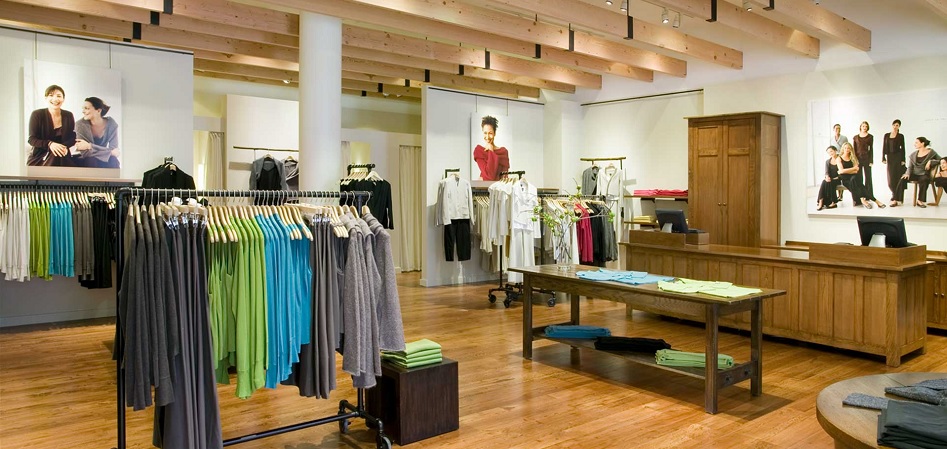From Patagonia to Everlane: how to fit the fashion system into a sustainable DNA
Despite being small brands, they have been able to make enough noise to be noticed by the industry and the consumer. And not only this, nowadays, in the middle of the “go green or go home” movement, this companies are in the top of the rankings to inspire change.

What are the differences between Patagonia, Everlane, Reformation or Eileen Fisher from Inditex, H&M, PVH, Adidas or Kering? The fashion system is the same for both, but some elements make these brands referents in sustainability. Since day one, this companies base its strategies in being more eco, but, what does this mean?
From Patagonia’s principal statement in its campaign "Don’t buy this jacket" in the New York Times, to the research for sustainable fibers with non-conventional raw materials or staying away from fast fashion and low cost, there are brands that want to go against the norms of the sector.
Despite being small brands, they have been able to make enough noise to be noticed by the industry and the consumer. And not only this, nowadays, in the middle of the “go green or go home” movement, this companies are in the top of the rankings to inspire change.
Patagonia
This American company is one of the pioneers to talk about sustainability. Founded in 1973 by the climber and activist Yvon Chouinard, the brand has work from the beginning over the concept of sustainabily, even before it became part of the fashion industry vocabulary. Since 1985, the company has destined 89 million euros to organizations that support the environment and other 75 million to associations for social awareness through its investment fund Tin Shed Ventures.
Besides that, the company started in 2002 its 1% For The Planet project, that donates 1% of its annual revenue, the equivalent of 175 million euros, to projects that preserve the planet. Patagonia is a pioneer in making the customer part of a more sustainable industry, with its campaign “Don’t buy this jacket”, published in 2011 in the New York Times.
But not even the pioneers scape the traditional practices of the industry, the company was accused by Greenpeace of using textiles with microplastics and had to step up its game and speed its fiber technology. The group is part of an alliance with the also American Walmart, the Sustainable Apparel Coalition (SAC), one of the biggest lobbies in the industry to move forwards in sustainability.
Everlane
Radical transparency is the motto of the company founded in 2010 by Jesse Farmer and Michael Preysman. Everlane builds its entire strategy around transparency in all the steps of its value chain. From design, to raw materials, to manufacturing and transportation. Amongst its politic, the company has campaigns with sustainable sources and recycled materials like plastic removed from the oceans. Its last project, Tread, an independent sneakers brand that the company is planning on launching to the market to join the sneakers boom.
The company has reached more that 20 million dollars in several financial rounds and has conquered funds like Lerer Hippeau Ventures, Maveron and 14W.

Reformation
The company founded in 2009 by the former model Yael Aflalo is one of the pure players of the industry that assures that sustainability is at the center of all its activities. Investing in green infrastructure, provide its employees with a decent work environment and growth opportunities are some of the premises that make Reformation a referent for eco fashion.
The company, based in Los Angeles, handles a classification of its fibers according to the water input, energy input, land use, eco-toxicity, greenhouse gas emissions, human toxicity, availability and price. Besides that, the company has allied with associations to preserve the planet.The investors group Premira acquired a majority share of the company recently. Since its start in 2009, the company raised 37 million dollars in financing rounds.
Stella McCartney
The British designer, UN sustainability ambassador, was the pioneer of eliminating the use of fur and skin in her collections and in the research of sustainable raw materials. The brand bases every decision in the possible effects it could bring to the planet. Amongst its innovations is the use of technology and circularity in its value chain.
Some of the organizations the designer works with are Parley for The Oceans, Sustainable Apparel Coalition (SAC) or Textile Exchange, amongst others. Also, the company works hand in hand with other companies of the industry that are also betting for sustainability like Adidas or the luxury holding that recently added the brand to its portfolio, LVMH.
Eileen Fisher
The American designer founded the brand with her name in 1984 with one collection, The Modular Line, that was created under the idea that women wanted simple garments, that didn’t follow trends and that they could use season after season. The brand is built over the pillars of proximity in its sourcing, the use of organic and sustainable fabrics, natural or certified dyes and human right for its employees, adding sustainability to all its value chain.
Besides that, the company also supports fair trade and works in the production of its own fabrics that achieve their standards. The company invested last year more than 1.4 million dollars in organizations to stop climate change and support human rights, as the company mentions in its annual report.

Veja
A vegan sneaker brand created in 2004 by Sébastien Kopp and François Morillion with the intention of creating a symbolic item of our generation and our time and it also crystalizes the globalization thorough its production, distribution and use”, as explained by its founders. Besides using vegan materials, the company is a pioneer in innovation and research of alternative substances using raw materials like pineapple skin and PET recycled plastic.
The company acquires its supplies directly from groups in Brazil and manufactures in a factory in the south of the country. All its centers are certified with the de Atelier Sans Frontières stamp, that promotes the integration of the employees giving them a well-payed job and the chance of growing in the company. Orders for its supplies are made between one and three years in advance, to guarantee the survival of the farmers and the reinvestment in its crops.
Allbirds
“Light on your feet, easy on the planet”, this is the motto of the American company founded by the New Zealand duo Tim Brown and Joey Zwillinger, pioneers in the creation of a material that derivates from wool. The company started with its iconic sneakers Wool Runner and since that the company expanded its material range to Recycled plastic, vegan castor oil and recycled cardboard, amongst others.
Besides that, the group has allied with organizations like ZQ Merino and Forest Stewardship Council to make sure the strict norms of its project are followed. One of the goals of Allbirds is to be carbon neutral in all its supply chain this year. Last available data assure that the company raised 75 million dollars in investment groups, including the investment management firm T. Rowe Price and it’s valued in around 1.4 billion dollars.


info@themds.com
Validation policy for comments:
MDS does not perform prior verification for the publication of comments. However, to prevent anonymous comments from affecting the rights of third parties without the ability to reply, all comments require a valid email address, which won’t be visible or shared.
Enter your name and email address to be able to comment on this news: once you click on the link you will find within your verification email, your comment will be published.